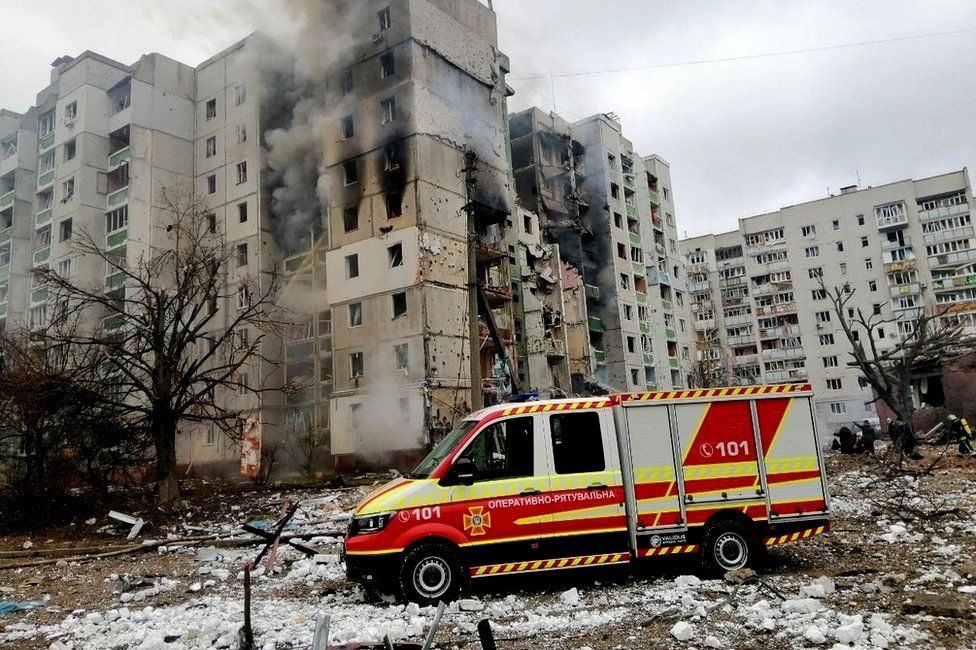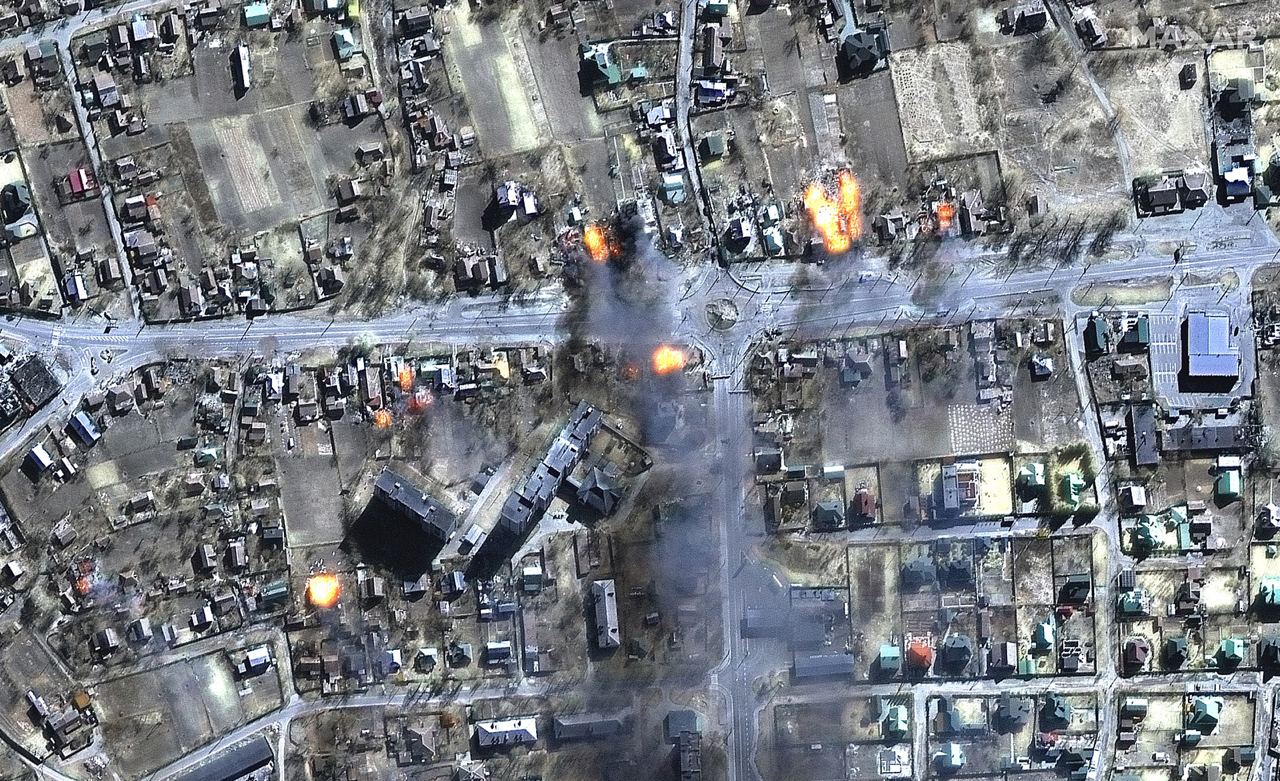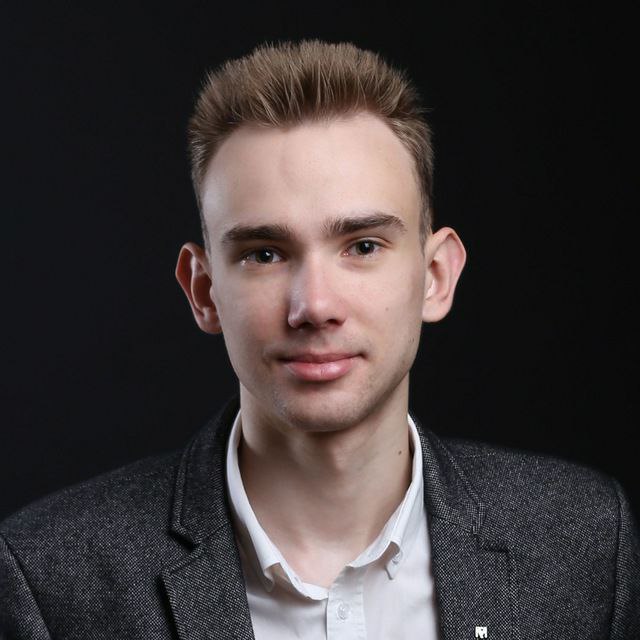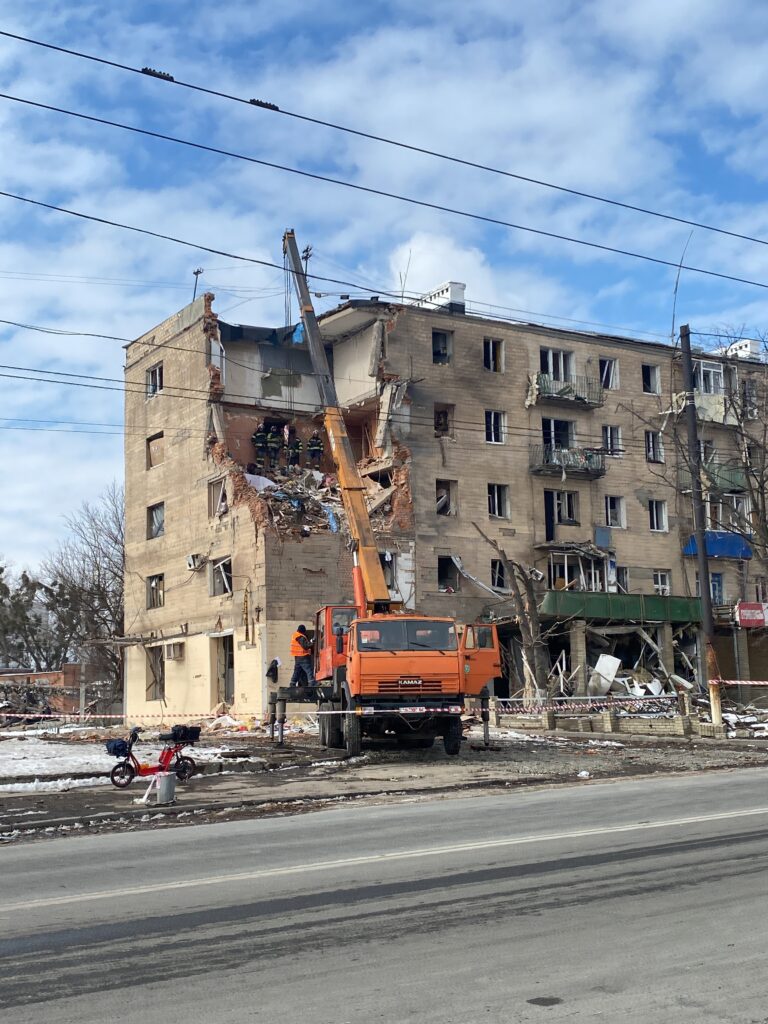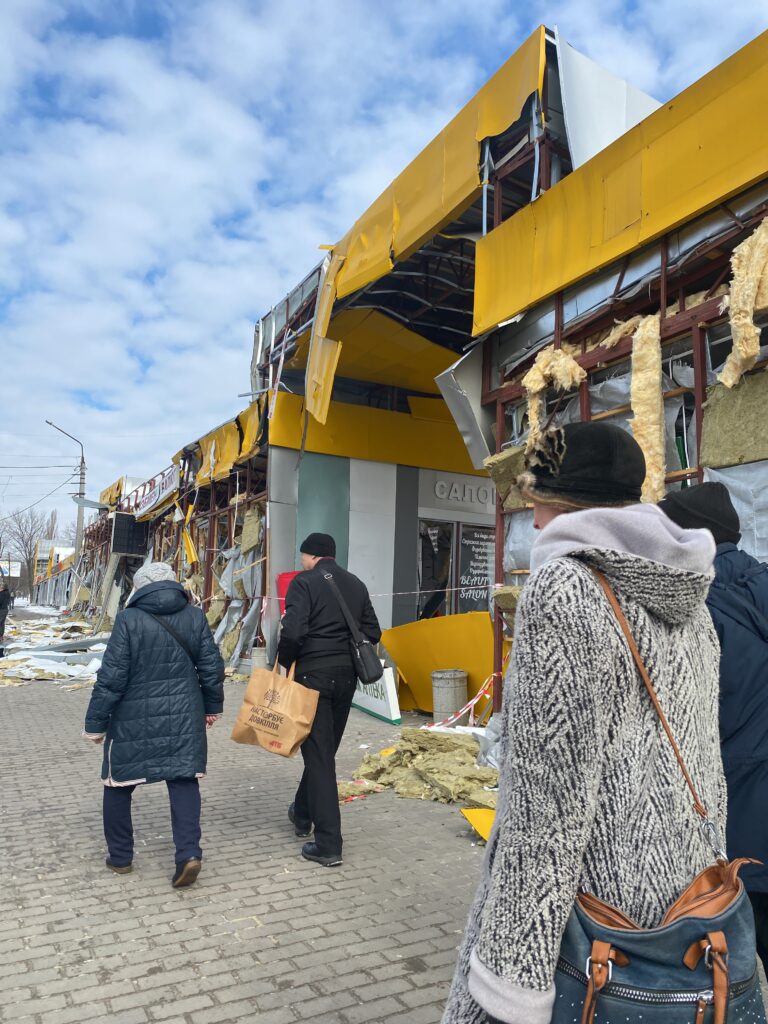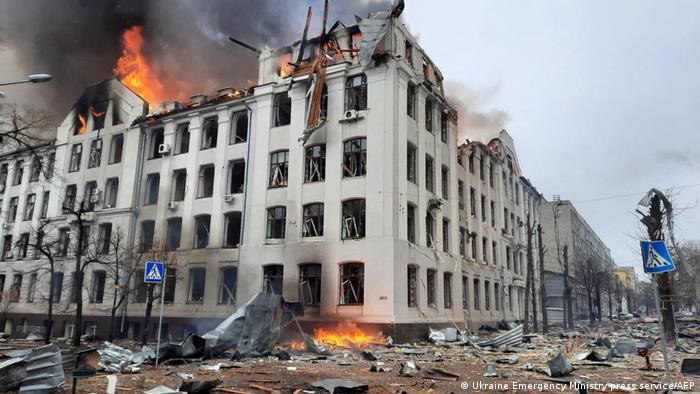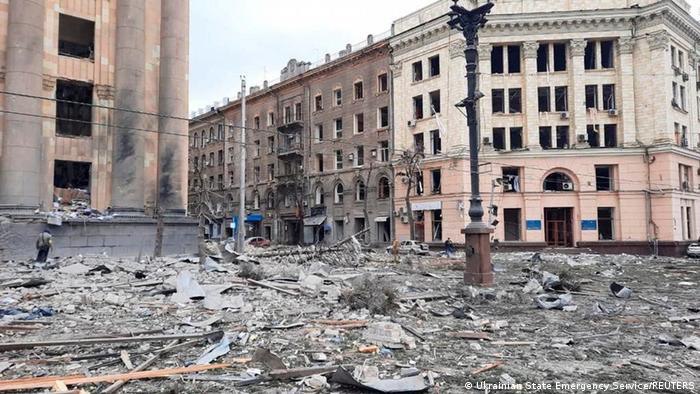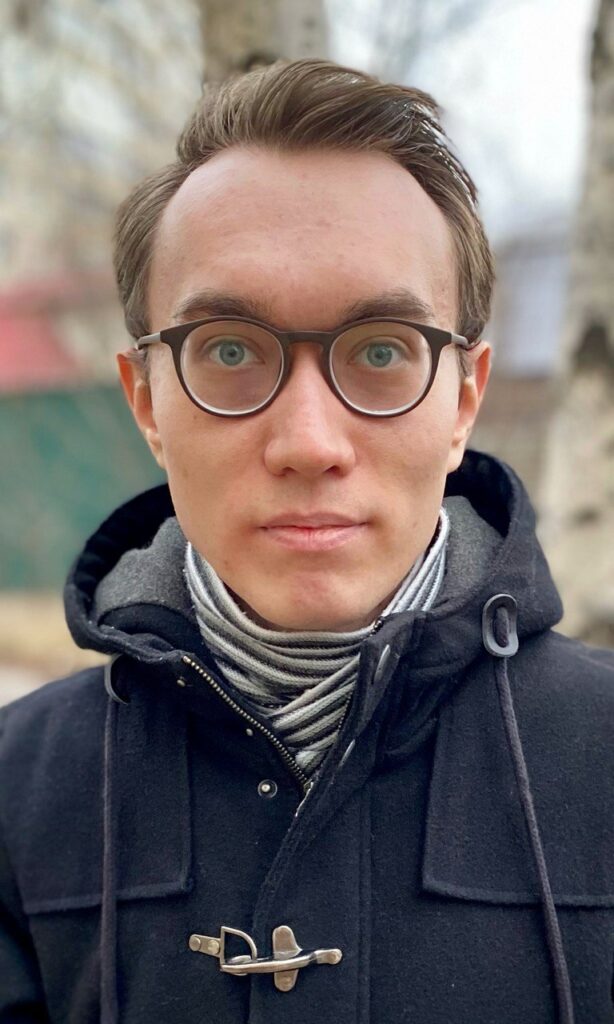
Life at War, part 1: Learning to live with a constant fear of death
On February 24, at 4am, Russia launched a full-scale invasion of Ukraine. More than a month later, missile attacks on military and civilian infrastructure are taking place across the country every day. Martial law has been declared in Ukraine and for more than a month Ukrainian people have been living under military law. Civilians are taking shelter in basements due to constant attacks, there is no food or water in hot spots, and the occupiers are disrupting green corridors and preventing the delivery of humanitarian aid. New reports of terrifying actions by Russian soldiers (like raping teenagers or killing innocent children) are emerging every day.
To escape Russian occupation and save their lives, some Ukrainians have had to leave their homes, going either to the Western regions of Ukraine or to neighbouring countries. But there are those who, despite the invasion of the Russian army and the active hostilities, remain in the cities where military action is taking place.
To tell their stories, Ukrainian Young European Ambassadors (YEAs) have prepared a trilogy, ‘Life at War’, each part of which will share the personal stories of Ukrainian YEAs whose lives have been disrupted by the war. The first part features the stories of young people who stayed in their homes on the front line. In the second part, we will talk to those who sought shelter from the bombardment in the ‘safer’ Western regions of Ukraine. The third part will focus on finding refugees in neighbouring countries and looking at the challenges they face.
Nazar, Yuliia, and Serhii are YEAs in Ukraine who found themselves trapped in Kharkiv and Chernihiv, which have been under heavy and sustained attack since 24 February. They were interviewed by Ukrainian YEA Sofiia Korol during the week of 17-25 March. Sofiia is a student of the Department of Journalism at Chernivtsi National University and a participant in various Erasmus+ youth exchanges. She is primarily interested in ecology, gender equality and media literacy, but 24 February has radically changed her life as well. She is currently in Chernivtsi, volunteering and helping people who have been forced to leave their homes.
Nazar: We are doing everything to bring our victory closer, even if it is only a drop in the ocean
Nazar is a law student at the National University of Kyiv-Mohyla Academy. Before the war, he was studying, he had started working for an IT company, and was engaged in various cooperation actions with different diplomatic missions in Ukraine on cultural and educational projects in his hometown. When the war began, Nazar was in his hometown – Chernihiv. He recalled how his hometown had changed for the better in recent years, improvements that had been noticed and appreciated by diplomats, tourists, and journalists. Much of that today lies in ruins.
When we spoke, Russian soldiers were surrounding Chernihiv in almost all directions. “The whole city is being bombed. The entire private sector has been destroyed,” Nazar said. A rocket hit his parents’ house. His girlfriend’s grandparents’ house was destroyed by mortar fire, luckily, they survived. There is almost no light, water, and heating in the city. It is impossible to carry out repair works due to the lack of the employees at the repair utilities. Of the nearly 300,000 population, about 120,000 remained in Chernihiv, mainly due to some physical and/or financial constraints.
“If you ask me what Chernihiv looks like, I will unfortunately answer that it has never been in such a terrible condition as it is now. There is nothing left of the city I knew. The situation is terrible because of the atrocities of the Russians, and we can do little with missiles, mortars and planes bombing us every day. Such issues cannot be solved without international assistance in closing the sky over Ukraine,” Nazar said.
Part of Nazar’s family went abroad, but some stayed in Ukraine. Thanks to his management at work, which supports volunteering, he was able to keep his job and start helping others.
“We help with the provision of humanitarian aid to the residents of the city who are stuck here. We do all that we can. Indeed, it is a drop in the ocean, but it is our horizon of opportunities and we are doing everything to bring our victory closer,” he said.
Nazar noted that while the war is going on, it is impossible for him to make plans for the future as he does not know what will happen and what to expect, actually, whether he will survive from one day to the next.
“I try not to plan anything beyond tomorrow because of the uncertainty of everything. Sometimes my inner feelings prevent me from working properly but at such moments I think about my city, about Kyiv, Mariupol, Kharkiv, Kherson and dozens of other Ukrainian cities, and I can’t find time to feel sorry for myself. That’s why we’re holding on!” said Nazar. He urged everyone not to be silent and to speak out about the situation in Ukraine on all levels, using all the possible instruments.
Yuliia: I have rethought my life values and got used to the new reality
Julia is a student of the Yaroslav Mudryi National Law University and an active public figure. Before the war, her life was packed with different social activities. Yuliia is proud to talk about her hometown. She was born and lives in Kharkiv: “It was in Kharkiv that I had my first steps, went to school, and made friends.” After successfully passing her exams, she had the chance to go to different universities, but she chose to stay in her home city.
“Kharkiv has a special atmosphere that I have not met in any other city – it is both very local and always new. I sincerely admire Kharkiv and believe that we will be able to rebuild it and make it even better (the city has suffered greatly from constant shelling),” commented Yuliia.
On 24 February, Yulia’s family, like all Kharkiv residents, woke up in the morning to the sound of explosions. According to Yuliia, they were very loud and startling, “no one understood what was going on”.
“Yesterday [on 23 February], we went to bed in a quiet city, and today [on 24 February] we woke up to the sound of a hail of rockets. And then everything is as in a nightmare: the announcement of martial law, general panic, the first damaged houses, destroyed infrastructure… Since that day, the explosions have not stopped even for a moment; there was not a day that was quiet. I can’t believe that this is true even now, after four weeks of constant shelling. I want to wake up and understand that it was a dream, just a bad dream,” said Yuliia.
She said the occupiers had bombed a nearby market and damaged civilian property close to her house. During the air raids, they damaged houses and schools. To protect the residents of the city, a curfew was implemented after 6pm.
At the same time, Yuliia noted that the reaction of the population and local authorities was amazing. She said she had never seen such unity among Kharkiv residents and a desire to protect and rebuild their city. Together with her parents, Yuliia still stays in Kharkiv. They volunteer to help people with disabilities who are unable to buy food or medicine themselves because of the war.
“In fact, now, after four weeks of active hostilities, we already feel a little better. We have moved to the stage of ‘acceptance’. Although it is very difficult to hear explosions and see the results of bombings every time. We try to watch less news, literally 1-2 times a day, to understand the general situation, and, instead, to do more to help people and the city,” Yuliia explained.
She has also rethought her values and priorities. Before the war, she dreamed of becoming a scientist and an outstanding lawyer, but now her only dream is to end the war and the suffering of the people as “there is nothing more important than a person’s life”.
“I urge everyone to get involved in any way possible: sending humanitarian assistance, spreading information, volunteering, helping people in need, supporting business and paying taxes, saving jobs, etc. Every step helps us to end the war,” claimed Yuliia.
Serhii: Bombing has become a regular part of my life
Serhii is also from Kharkiv. He is a doctoral student at the University of Hamburg in Germany. The young man is doing research EU law and publishes scientific articles. He has also been involved in different European projects since his bachelor’s degree in Ukraine.
“I was born and raised in Kharkiv. This is the place of my childhood and youth. Every corner of this city has some emotional value for me and is associated with countless memories. I returned to Kharkiv from Germany in early February to see my family and relax. With the beginning of this war, I am trapped in this living hell,” Serhii began his story.
He noted that bombing and air raids had now become a part of his daily life. Due to the damaged infrastructure, utilities are regularly shut down. “We live between our house and the nearest bomb shelter, running from one place to another. There is a lack of food and basic means; it is very difficult to find some medicine. I would like to say that I am used to the constant sound of bombing and the feeling of the walls shaking, but I am not. For the fourth week in a row, my family and hundreds of thousands of Kharkiv residents live in constant fear of death. To see a place that is so dear to my heart be erased, my heart breaks,” said Serhii.
The student said he now spent time caring for his mother. It became difficult for him to concentrate and work, because electricity and the Internet are regularly cut off. “Nevertheless, I find relief writing about my experience. The greatest source of support in these times is the messages of love and hope that I receive from my fellow doctoral students. Just realising that there are people who appreciate me and are waiting for me does not allow me to give up,” he said.
Serhii said the war would definitely have a lasting effect on his mental health.
“Not knowing how long it will last makes this nightmare even worse. I will definitely ask for some help later as it is impossible to do it now and, to be honest, I do not have time for it at the moment. My mother is going through a lot more, but we support each other as much as we can.”
The message Serhii would like to send to his peers and broader public is the following: “I urge the citizens of the world to do more and fight for democracy and peace everywhere and every day.” There is nothing more terrifying than seeing your loved ones suffering, your hometown being destroyed and your country being attacked. Thus, Nazar, Yuliia, and Serhii call upon everyone to have a closer look at what is going on in Ukraine and not to let Russian propaganda darken your minds.
Note: at the moment of publication of this blog, Yuliia is still in Kharkiv, while Nazar and Serhii have managed to leave their hometowns. All of them continue to volunteer helping Ukrainians to protect their sovereignty and Europeans to have peace in their homes.
LATEST

How you can help the planet every day

Building Europe: Poland’s experience of joining the European Union and lessons for Ukraine

World Health Day 2024: My Health, My Right

EUREKA MEETS EUROPE – opportunities to develop and study. My experience

Can you wear pink in the workplace?
More campaign pages:
Interested in the latest news and opportunities?
This website is managed by the EU-funded Regional Communication Programme for the Eastern Neighbourhood ('EU NEIGHBOURS east’), which complements and supports the communication of the Delegations of the European Union in the Eastern partner countries, and works under the guidance of the European Commission’s Directorate-General for Neighbourhood Policy and Enlargement Negotiations, and the European External Action Service. EU NEIGHBOURS east is implemented by a GOPA PACE-led consortium. It is part of the larger Neighbourhood Communication Programme (2020-2024) for the EU's Eastern and Southern Neighbourhood, which also includes 'EU NEIGHBOURS south’ project that runs the EU Neighbours portal.

The information on this site is subject to a Disclaimer and Protection of personal data. © European Union,
